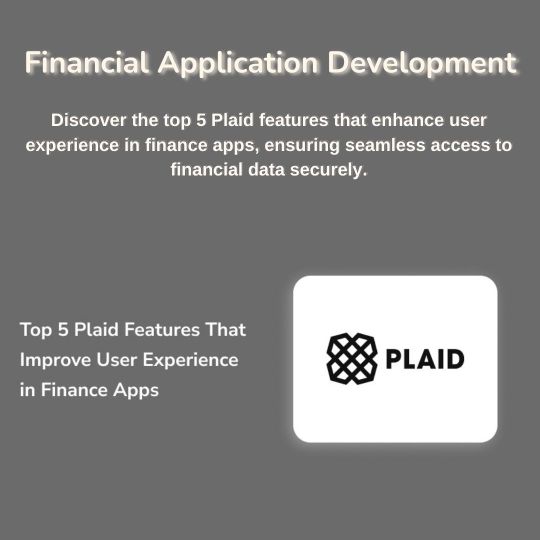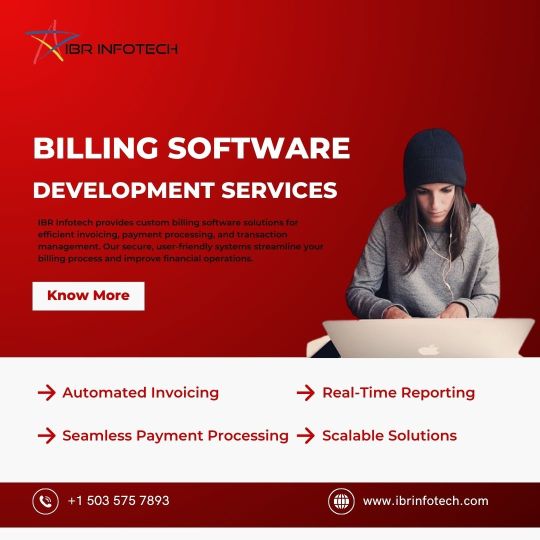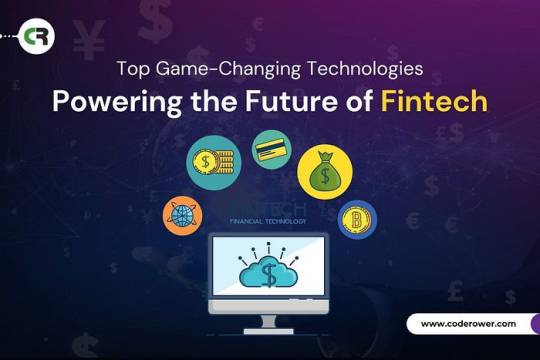#Custom Financial Software Development
Explore tagged Tumblr posts
Text
Top 5 Plaid Features That Improve User Experience in Finance Apps
Plaid offers several standout features that significantly enhance user experience in finance apps by providing secure and seamless access to financial data. Among its top features are its robust bank account linking capabilities, which allow users to connect their accounts quickly and effortlessly. Its transaction categorization tools deliver valuable insights by organizing spending data into meaningful categories. Plaid also ensures a high level of security with advanced encryption and tokenization methods, safeguarding user information. Its real-time balance checks enable better financial management, while its streamlined authentication process ensures a smooth and hassle-free experience. These features collectively make Plaid an essential tool for modern finance apps.

#Financial IT Services#financial technology services#financial services it solutions#IT solutions for financial services#financial software development#financial software engineering#financial software development company#financial software development services#financial software development agency#custom financial software development#financial development company#finance software development companies#finance software development company#finance software development services#software development finance#finance software development#financial software development companies#financial mobile app development company#financial mobile app development#financial application development#fintech developments#fintech development company
1 note
·
View note
Text
In this article, We provide a comprehensive understanding of the financial software application that empowering you to make informed decisions for your organization's financial health.
#Custom Financial Software Application System#Custom Financial Software Application#financial planning software#financial planning software development#Custom Financial Software Development#Custom Financial Software#Financial Software#Financial Software Development#Software Development#Arizona#Phoenix#USA#PhoenixBizz
0 notes
Text
From idea conceptualization to deployment, SDH’s full-cycle development process ensures your fintech project succeeds. 💼💻 Work with us:
2 notes
·
View notes
Text
Streamline your finances with custom accounting software by InStep Technologies. We build scalable, secure, and easy-to-use solutions tailored to your business needs—trusted by SMEs, startups, and enterprises. Automate, analyze, and grow smarter with our expert development team.
#accounting software development#custom accounting software#finance software development#cloud accounting software#small business accounting software#accounting app development#enterprise accounting solutions#billing and invoicing software#bookkeeping software solutions#financial reporting software#AI accounting software#software for accountants#tax management software#online accounting system#InStep accounting solutions
0 notes
Text
Custom Enterprise Software Development: Benefits & Best Practices

Custom enterprise software is no longer a luxury—it's a competitive edge. Whether you're a fast-growing startup or a legacy enterprise, tailored digital solutions improve scalability, security, and operational control. From CRM and ERP to cloud-native platforms, custom software development aligns with your exact business needs—unlike off-the-shelf products.
📌 Dive into our blog to explore key benefits, real-world use cases, and strategic best practices for successful enterprise-grade development. Read here
#Custom enterprise software#financial services technology#custom application development company#Custom Enterprise Software Development
0 notes
Text
#FinTech Software Development#Custom FinTech Solutions#Financial Software Netherlands#Transcodezy IT Solutions
0 notes
Text
From secure payment systems to AI-powered personal finance apps, SDH offers top-tier fintech development services. 🏦📱 Build with us:
#financial software development#custom app solutions#personal financial apps#SDH#fintech development services
0 notes
Text
Experience fintech innovation like never before!
SDH delivers secure, innovative solutions like AI-driven apps, blockchain systems, and more. Join us:
0 notes
Text
Fintech built smarter. 🤓💻
SDH integrates cutting-edge technologies with your vision. Digital banking, blockchain, personal finance apps—done right. Explore:
#financial software development#custom app solutions#fintech#SDH#digital banking#blockchain#personal finance apps
0 notes
Text
Unlock the future of finance with SDH.
🌐 Our fintech services include personal finance apps, blockchain solutions, and secure transaction systems. Ready to innovate?
0 notes
Text
https://flowrocket.com/finance
#Accounting Advisory Servies USA#Accounting and Bookkeeping services for Business#Accouting and Bookkeeping services USA#Best Auditing Services in USA#Hire Accounting Associates in USA#Hire Audit Supervisor in USA#Hire Bookkeeping Associates in USA#Best CRM Software with Collaboration Tools#CRM solutions for Team Colloboration#Best construction CRM Software#CRM Solutions for Construction Management#Best contract management systems in USA#CRM Software for document management#Best CRM for customer support#CRM for customer service solutions#Customer service software in USA#Agile software development services USA#Business Process Automation USA#IT Consulting Service in USA#Lead management CRM software#Lead tracking CRM software#Best CRM for Financial Services#Financial Services CRM Software#Best GRC Software Solutions in USA#CRM for small businesses#CRM Solutions#Top CRM Software USA#Best CRM Software in USA#Industry Specific CRM Solutions#best free crm for insurance agents
0 notes
Text
InStep Technologies is a trusted fintech software development company delivering secure, scalable, and innovative financial solutions. We build custom fintech apps, APIs, mobile wallets, blockchain integrations, and automation tools for startups, banks, and enterprises.
#fintech software development#custom fintech solutions#financial technology apps#fintech development company#banking app development#blockchain in finance#secure payment software#finance automation tools#investment software solutions#fintech API integration
0 notes
Text
#technews#Enterprise Resource Planning (ERP)#ERP Solutions#Business Management Software#Integrated Business Applications#Supply Chain Management#Customer Relationship Management (CRM)#Financial Management Systems#Human Resources Management#Inventory Management Software#Manufacturing Resource Planning#Cloud ERP Solutions#On-Premise ERP Systems#ERP Implementation Services#ERP Consulting#ERP Software for Small Business#ERP Software for Manufacturing#ERP System Integration#ERP Software Development#ERP Customization Services#ERP Training and Support
0 notes
Text

Billing Software Development Services IBR Infotech
IBR Infotech specializes in providing custom billing software development services designed to streamline your invoicing, payment processing, and transaction management. Our solutions offer seamless integration with existing systems, ensuring accurate, automated billing processes that enhance financial operations.
With a focus on user-friendly interfaces and robust security, our billing software helps businesses reduce manual errors, improve cash flow, and maintain compliance. Whether you're a small business or a large enterprise, our scalable solutions can be tailored to meet your specific needs, ensuring efficiency and accuracy across your billing cycles. Let IBR Infotech transform your billing system into a powerful tool for financial management and business growth. Read more -https://www.ibrinfotech.com/solutions/custom-billing-software-development #BillingSoftware #SoftwareDevelopment #CustomBilling #InvoicingSoftware #PaymentProcessing #TransactionManagement #AutomatedBilling #FinancialManagement #SecureBilling #BillingSolutions #ScalableSoftware #BusinessSoftware #CashFlowManagement #BillingSystem #TechSolutions #EnterpriseSoftware #BillingServices #FinancialTech #SoftwareDevelopmentServices
#billing software development#custom billing software#invoicing software solutions#payment processing software#transaction management system#automated billing#secure billing software#financial management software#billing system integration#custom invoicing software#user-friendly billing system#billing software for businesses#financial operations software#automated invoicing solutions
0 notes
Text
Top Game-Changing Technologies Powering the Future of Fintech

The financial technology (fintech) sector is rapidly transforming, driven by innovative technologies that streamline processes, enhance customer experiences, and create new opportunities. These advancements, from artificial intelligence to blockchain, are revolutionizing financial services, empowering businesses to offer secure, efficient, and personalized solutions. CodeRower, with its forward-thinking approach and deep expertise, is at the forefront of this transformation, enabling clients to leverage the latest technologies effectively. Let’s explore the top technologies propelling the fintech revolution and shaping the future of finance.
1. Artificial Intelligence (AI) and Machine Learning (ML)
AI and ML have become fundamental in fintech, especially in decision-making and predictive analysis. These technologies help fintech companies process massive datasets, enabling them to provide customized services, detect fraud, and make data-driven decisions.
Customer Personalization: AI and ML help fintech firms tailor recommendations for products, loans, and investment portfolios by analyzing customer behavior and preferences.
Fraud Detection and Prevention: Machine learning algorithms monitor transaction patterns and detect anomalies in real-time, helping prevent fraud and unauthorized access.
Credit Scoring: Traditional credit scores have limitations, especially for people with minimal credit history. AI-driven credit scoring models consider alternative data, providing more accurate assessments for creditworthiness.
Example: Companies like PayPal and Square leverage AI to enhance user experience and improve security, maintaining a balance between frictionless access and robust protection.
CodeRower integrates AI-driven solutions to provide personalized customer experiences, from advanced credit scoring models to real-time fraud detection. By leveraging these tools, CodeRower helps financial organizations predict trends, identify risks, and improve customer engagement.
2. Blockchain Technology
Blockchain, the technology underlying cryptocurrencies, offers a decentralized approach to transactions, bringing security and transparency. It reduces the need for intermediaries and minimizes transaction costs, making it ideal for financial applications.
Cryptocurrencies and Digital Payments: Blockchain allows for fast, secure, and borderless payments. Cryptocurrencies like Bitcoin and Ethereum have popularized the idea of digital money.
Smart Contracts: These self-executing contracts automate transactions when predefined conditions are met, reducing delays and minimizing risks associated with manual processing.
Tokenization: By converting assets into digital tokens, blockchain enables fractional ownership and faster trading, especially useful in real estate and stock markets.
Example: Ripple and Stellar are blockchain-based payment platforms that provide cross-border payment solutions, significantly lowering transaction times and fees.
CodeRower designs secure and scalable blockchain-based solutions, including digital payment systems and smart contracts, that streamline operations and enhance transparency for clients. By focusing on decentralized finance and asset tokenization, CodeRower helps businesses reduce operational costs and drive growth through trustless, secure platforms.
3. Decentralized Finance (DeFi)
Decentralized Finance, or DeFi, leverages blockchain to deliver open, permissionless financial services without traditional intermediaries like banks. By using DeFi applications, users can lend, borrow, and trade assets directly on decentralized platforms.
Peer-to-Peer Lending and Borrowing: DeFi platforms like Aave and Compound enable users to lend or borrow assets, earning interest or gaining liquidity without a middleman.
Decentralized Exchanges (DEXs): Unlike traditional exchanges, DEXs allow users to trade cryptocurrencies directly with one another, improving privacy and control over funds.
Stablecoins: DeFi has also driven the growth of stablecoins (digital assets pegged to stable assets like the U.S. dollar), which offer price stability in the volatile cryptocurrency space.
Example: Uniswap, a popular DEX, allows users to trade directly from their digital wallets, reducing reliance on centralized exchanges and increasing transaction speed.
CodeRower assists clients in building robust DeFi applications that enable peer-to-peer lending, decentralized exchanges, and digital wallet services. These solutions empower businesses to offer financial products that increase accessibility and align with the growing demand for decentralized financial options.
4. Open Banking
Open Banking mandates financial institutions to share customer data (with consent) with third-party providers, fostering competition and innovation. It aims to give customers control over their data, enabling them to access better financial products.
Enhanced Services and Product Comparison: Open banking allows users to compare financial products and services across multiple providers, leading to more informed decisions.
Personalized Financial Advice: By aggregating financial data, third-party providers can offer more tailored insights and advice.
Streamlined Payments: Open banking allows for direct bank-to-bank transfers, reducing transaction costs and improving processing times.
Example: European open banking regulations, like PSD2, have driven the growth of third-party apps such as Mint and Plaid, which provide financial tracking and planning solutions.
CodeRower develops secure APIs that facilitate seamless data sharing between banks and third-party providers, allowing clients to meet regulatory standards and build more responsive, personalized financial services. By enhancing customer experience, CodeRower’s open banking solutions increase client retention and expand market reach.
5. Robotic Process Automation (RPA)
Robotic Process Automation (RPA) automates repetitive tasks, freeing employees to focus on more strategic activities. In fintech, RPA reduces human error and speeds up processes.
Data Entry and Compliance: RPA bots streamline data entry and ensure regulatory compliance, minimizing the risk of manual mistakes.
Customer Support: Automated chatbots use RPA to answer common customer queries, reducing wait times and improving user experience.
Loan Processing: RPA accelerates loan approvals by automating document verification and other administrative tasks.
Example: Many banks employ RPA to automate Know Your Customer (KYC) and Anti-Money Laundering (AML) checks, saving time and resources while ensuring compliance.
CodeRower applies RPA technology to streamline tasks like data entry, compliance, and customer support. With these automated processes, financial institutions can achieve faster turnaround times, ensure data accuracy, and enhance compliance, all while freeing up human resources for higher-value tasks.
6. Biometric Authentication
Security is paramount in fintech, and biometric authentication provides a robust, user-friendly solution. Technologies like fingerprint, facial, and voice recognition reduce the risk of unauthorized access.
Enhanced Security: Biometrics offer a unique identifier, making it challenging for unauthorized users to access accounts.
Improved User Experience: Password-free logins enhance convenience and reduce the chances of password theft.
Adaptation for Mobile: Mobile devices support biometric authentication, making it easier for users to secure their devices and access banking apps safely.
Example: Banks and fintech apps often use fingerprint and facial recognition for mobile app logins, ensuring that only the account holder has access.
CodeRower integrates biometric authentication systems into mobile banking apps and online platforms, enhancing security and improving the user experience. With a focus on advanced authentication mechanisms, CodeRower helps clients ensure that only verified users have access to sensitive financial data.
7. 5G Connectivity
With the advent of 5G, financial services can now operate faster and more reliably, especially on mobile devices. The improved connectivity supports real-time transactions, data streaming, and advanced app features.
Faster Transactions: 5G enables instant money transfers and low-latency trading, reducing delays.
Enhanced Mobile Banking: Banks can now offer more complex functionalities on mobile apps, such as video consultations and real-time customer support.
Edge Computing: 5G, coupled with edge computing, allows data processing closer to the source, which can reduce data transfer times and improve security.
Example: China’s 5G rollout has fueled growth in mobile payment systems, allowing apps like Alipay and WeChat Pay to deliver seamless, fast user experiences.
CodeRower leverages 5G’s capabilities to create high-performance mobile applications that support instant transactions and real-time data processing. By building applications optimized for 5G, CodeRower enables financial institutions to offer seamless and responsive mobile experiences, meeting the demands of today’s tech-savvy users.
8. Quantum Computing
Quantum computing, while still in its early stages, has enormous potential in fintech. Quantum processors can solve complex calculations exponentially faster than traditional computers, making them ideal for applications requiring significant computational power.
Risk Assessment and Portfolio Optimization: Quantum computing could improve accuracy in analyzing risk and optimizing investment portfolios.
Encryption and Security: Quantum cryptography promises a higher level of security, crucial for safeguarding sensitive financial data.
Fraud Detection: Quantum algorithms can potentially detect patterns and anomalies faster, identifying fraud attempts with greater accuracy.
Example: Although still largely experimental, banks like JPMorgan and IBM are exploring quantum computing to strengthen data encryption and improve financial forecasting.
Although quantum computing is an emerging field, CodeRower is staying ahead by researching its potential applications in financial modeling and data encryption. CodeRower aims to provide clients with the latest advancements, from high-speed transaction processing to improved data protection, preparing for the future of fintech security and performance.
Conclusion
The fintech revolution, driven by AI, blockchain, DeFi, and other emerging technologies, is transforming traditional financial services into a dynamic and customer-focused ecosystem. As these technologies mature, fintech will continue to innovate, offering faster, safer, and more inclusive financial solutions that empower consumers and businesses alike. The future of fintech is bright, and as these advancements continue to unfold, financial services will become even more integral to the digital landscape.
Ready to take the next step? Contact us to see how CodeRower can help you unlock new possibilities in fintech innovation. Let’s Connect!
#fintech development company#fintech software#fintech#finance#financial#financial services#software development companies#software development#app development#web app development#web development#ios app development#blockchain development#game development#custom app development#android app development#custom software development
0 notes
Text
A custom CRM for a financial company, built for the expansion of existing business logic, with the new features a client lacked previously. The modernized financial CRM system offers better customer relationship management, stronger client loyalty, and improved operational efficiency.
Industry: FinTech
Tech stack: MySQL, PHP, React.js
#fintech software development company#fintech app development company#fintech industry#fintech#crm development#crm integration#crm software#crm#financial#outsourcing#software development#web development#staff augmentation#custom software development#it staff augmentation#custom software solutions#it staffing company#it staff offshoring#custom software
0 notes